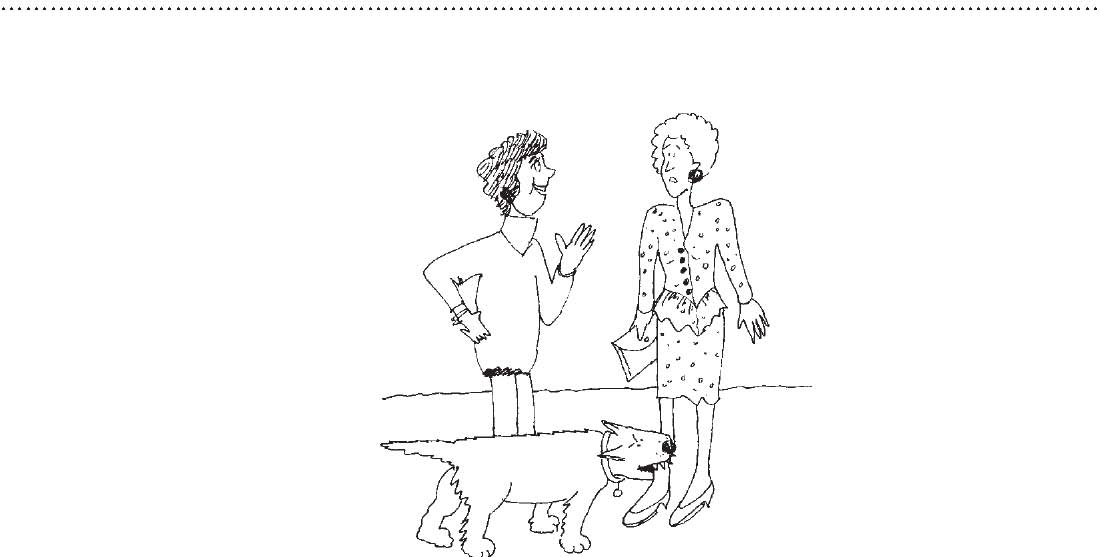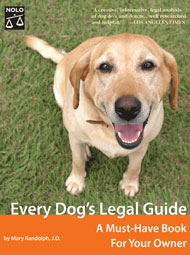For Dog Owners: How to Prevent Injuries
If you pick up a starving dog and make him prosperous, he will not bite you. This is the principal difference between a dog and a man.
- MARK TWAIN
Any dog can hurt someone. The majority of dog bites, in fact, are inflicted by dogs that belong to the victim's family or friends. Don't think that because your dog is gentle, old, or small, it can't cause an injury. Even normally docile dogs will bite when they are frightened or when they are protecting their puppies, owners, or food - not necessarily in that order. A dog can easily hurt someone accidentally, by frightening or tripping them. You may not be scared when your Pekingese comes tearing around the corner of the house barking, but someone walking by on the sidewalk might be. If that timid passer-by falls, you could be liable for any hospital bills.
The best way to avoid liability is, obviously, to prevent your dog from causing injury or damage. A few simple rules, set out in the checklist below, will help you avert incidents and, if your dog bites someone, keep your liability as low as it fairly should be.
PREVENTING DOG BITES
- Train and socialize your dog. Exposure to lots of people and situations at a young age is crucial. For some good tips, contact the Humane Society of the United States at www.hsus.org or the American Dog Trainers Network at www.canine.org.
- Never let a dog run at large. In some states, you're automatically liable for any injury your dog causes while at large.
- Watch your dog around children. Almost half of all reported dog bites are to children under 12 years old.2 Young children, who may unknowingly provoke a dog, are especially likely to be bitten - even by dogs they're familiar with. Never leave a dog alone with a toddler or infant. Make sure the gate to your yard is child-proof.
- Keep your dog's vaccinations current. If your dog bites someone, the authorities, not to mention the victim, will view it a lot more seriously if the dog doesn't have a current rabies vaccination.
- Keep the dog out of strangers' paths. Lots of people - mail carriers, salespeople, poll-takers, Girl Scouts - routinely come to your front door; keep the dog away from it. A fenced front yard isn't good enough; most people will open a gate and walk on up to the door.
- Post warning signs. If you have any reason to think that your dog might injure someone coming onto your property, post "Beware of Dog" or "Dog in Yard" signs prominently. Stay away from creative variations on the traditional signs; someone could reasonably assume that a cartoon-like "Trespassers Will Be Eaten" sign is a joke, not a serious warning.

